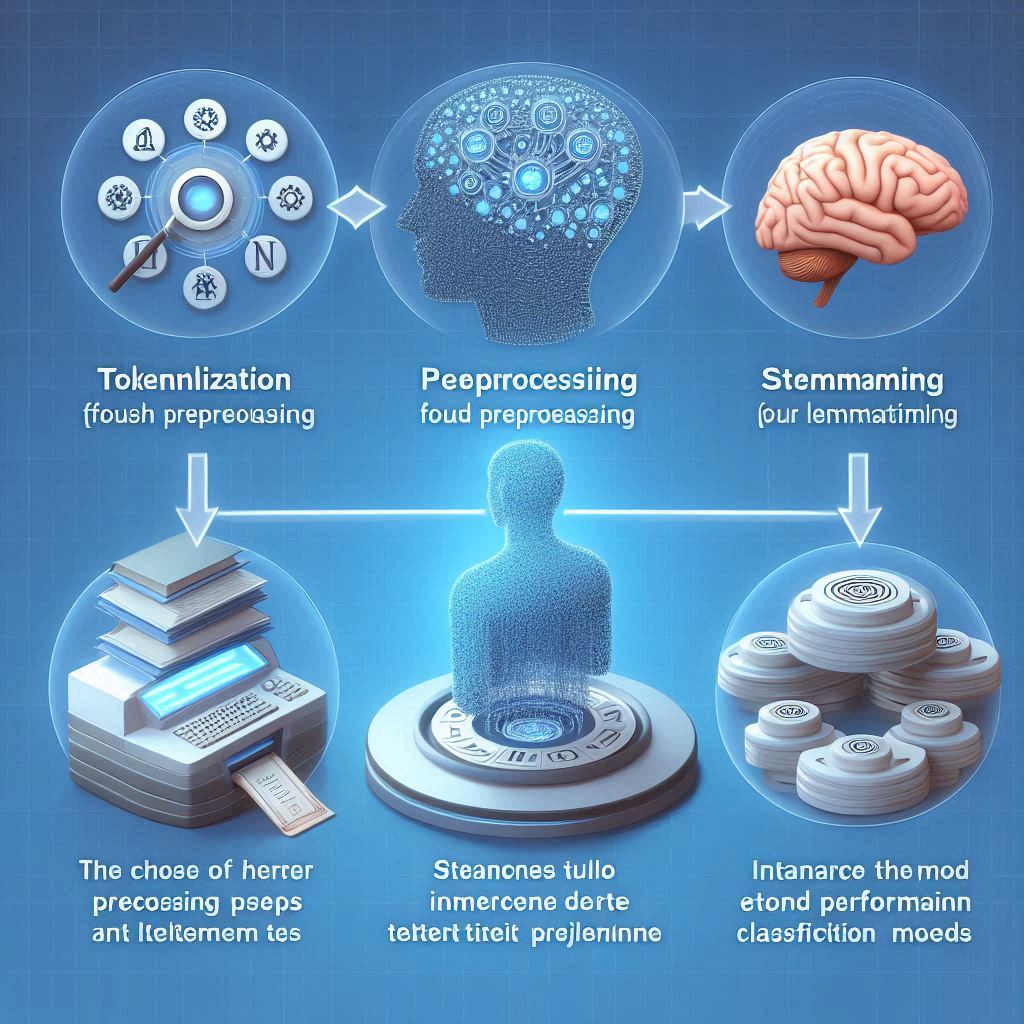Why SEO-Optimized Articles Matter
In today’s digital age, having an online presence is crucial for businesses and individuals alike. One of the most effective ways to increase your online visibility is through search engine optimization (SEO). SEO-optimized articles are a key component of any successful digital marketing strategy. They help to drive traffic to your website, increase engagement, and ultimately boost your online presence.
SEO-optimized articles are written with the aim of ranking higher in search engine results pages (SERPs). This means that they are written with specific keywords and phrases in mind, and are structured in a way that search engines can easily understand. When done correctly, SEO-optimized articles can help to improve your website’s visibility, drive traffic, and ultimately increase your revenue.
The Importance of ChatGPT Prompt Templates
Writing SEO-optimized articles can be a daunting task, especially if you have little experience in SEO writing. This is where ChatGPT prompt templates come in. ChatGPT is an AI-powered writing assistant that can help you to create SEO-optimized articles with ease.
ChatGPT prompt templates are pre-written prompts that guide you through the process of writing an SEO-optimized article. These prompts are designed to help you understand the basics of SEO writing, and to provide you with the tools you need to create high-quality, engaging content that ranks well in search engine results.
Understanding the Basics of SEO Writing
Before you can start using ChatGPT prompt templates to create SEO-optimized articles, it’s important to understand the basics of SEO writing. SEO writing is all about creating high-quality, engaging content that is optimized for search engines. This means that you need to have a good understanding of the keywords and phrases that your target audience is searching for, and how to use them effectively in your content.
One of the most important aspects of SEO writing is keyword research. This involves identifying the keywords and phrases that your target audience is searching for, and incorporating them into your content in a way that is natural and engaging. There are a number of tools available that can help you to conduct keyword research, such as Google Keyword Planner and SEMrush.
How to Use a ChatGPT Prompt Template
Using a ChatGPT prompt template is easy. Simply choose a template that is relevant to your topic, and follow the prompts. The prompts will guide you through the process of creating an SEO-optimized article, from keyword research to structuring your content for maximum impact.
Here is an example of a ChatGPT prompt template for an article about “The Benefits of Yoga for Mental Health”:
Title: The Benefits of Yoga for Mental Health
Keywords: yoga, mental health, mindfulness, stress relief
Introduction:
- Briefly introduce the topic of yoga for mental health
- Explain why this is an important topic to explore
- Include a hook to engage the reader
Section 1: The Science of Yoga for Mental Health
- Explain the scientific evidence behind the benefits of yoga for mental health
- Include statistics and research to support your claims
- Use examples to illustrate your points
Section 2: Mindfulness and Yoga
- Discuss the role of mindfulness in yoga practice
- Explain how mindfulness can help to improve mental health
- Provide tips for incorporating mindfulness into your yoga practice
Section 3: Yoga for Stress Relief
- Discuss the benefits of yoga for stress relief
- Provide examples of yoga poses and techniques that are particularly effective for stress relief
- Include testimonials or case studies to illustrate your points
Conclusion:
- Summarize the key points of your article
- Emphasize the importance of yoga for mental health
- Provide a call to action for readers to try yoga for themselvesResponse:
Introduction: Yoga has become increasingly popular as an exercise and relaxation technique, but did you know that it also offers significant mental health benefits? In this article, we’ll explore the science behind yoga for mental health, the role of mindfulness in yoga practice, and the benefits of yoga for stress relief.
Section 1: The Science of Yoga for Mental Health Studies have shown that yoga can be an effective treatment for mental health conditions such as anxiety, depression, and PTSD. According to a review of 35 clinical trials by Harvard Health, yoga was found to be helpful for reducing symptoms of anxiety and depression. In addition, a study published in the Journal of Traumatic Stress found that yoga was an effective treatment for PTSD symptoms.
Yoga can also help to improve overall mental health and well-being. A study published in the International Journal of Yoga Therapy found that a regular yoga practice was associated with improved quality of life and decreased symptoms of stress and anxiety. This may be because yoga helps to regulate the stress response system in the body, leading to a reduction in stress hormones.
Section 2: Mindfulness and Yoga Mindfulness is a key component of many yoga practices, and has been found to be particularly helpful for improving mental health. Mindfulness involves paying attention to the present moment with curiosity and without judgement. By practicing mindfulness during yoga, individuals can become more aware of their thoughts and emotions, and develop a greater sense of control over them.
Research has found that mindfulness can be helpful for reducing symptoms of anxiety, depression, and stress. In addition, a study published in the Journal of Psychosomatic Research found that mindfulness meditation was associated with decreased inflammatory markers in the body, which may help to reduce the risk of chronic health conditions.
To incorporate mindfulness into your yoga practice, try focusing on your breath or body sensations during each pose. Allow thoughts and emotions to come and go without judgement, and try to maintain a sense of presence throughout your practice.
Section 3: Yoga for Stress Relief One of the most well-known benefits of yoga is its ability to promote relaxation and reduce stress. Yoga poses such as Child’s Pose, Corpse Pose, and Bridge Pose are particularly effective for stress relief, as they allow the body to release tension and calm the mind.
In addition to practicing yoga poses, individuals can also benefit from incorporating yoga into their daily routine. By setting aside time each day for yoga and other relaxation techniques, individuals can improve their overall mental health and well-being.
Conclusion: Yoga offers a wide range of benefits for mental health, including reducing symptoms of anxiety, depression, and PTSD, improving overall mental health and well-being, and promoting relaxation and stress relief. These benefits may be due to the combination of physical movement and mindfulness practice that is central to yoga. By incorporating yoga into their daily routines, individuals can experience improved mental health and well-being. If you haven't tried yoga before, now is the perfect time to start. With its many benefits for the mind and body, yoga can help you to live a happier, healthier, and more fulfilling life.Creating Catchy Headlines for SEO Articles
The headline of your article is one of the most important elements of SEO writing. Your headline needs to be catchy, engaging, and optimized for search engines. Here are some tips for creating a great headline:
- Use numbers: Including numbers in your headline can make it more eye-catching and memorable. For example, “10 Benefits of Yoga for Mental Health”.
- Use strong verbs: Using strong verbs in your headline can make it more engaging. For example, “Discover the Benefits of Yoga for Mental Health”.
- Include keywords: Your headline should include the keywords that you are targeting in your article. For example, “Yoga for Mental Health: How Mindfulness and Stress Relief Can Improve Your Wellbeing”.
- Keep it short: Your headline should be no more than 60 characters long, to ensure that it displays properly in search engine results.
Crafting the Perfect Meta Description
The meta description is a brief summary of your article that appears in search engine results. It is important to craft a compelling meta description that encourages readers to click through to your article. Here are some tips for writing a great meta description:
- Keep it short: Your meta description should be no more than 155 characters long.
- Include keywords: Your meta description should include the keywords that you are targeting in your article.
- Be descriptive: Your meta description should provide a brief summary of your article, including its main points and benefits.
- Use a call to action: Your meta description should encourage readers to click through to your article. For example, “Discover the Benefits of Yoga for Mental Health Today!”.
Using Keywords Effectively in Your Articles
Using keywords effectively is essential for SEO writing. Here are some tips for using keywords in your articles:
- Use keywords naturally: Your keywords should be incorporated into your content in a way that is natural and engaging.
- Use variations of your keywords: Using variations of your keywords can help to make your content more diverse and engaging.
- Use long-tail keywords: Long-tail keywords are more specific and targeted than broad keywords, and can help to attract more qualified traffic to your website.
- Don’t overuse keywords: Keyword stuffing can harm your SEO efforts, so it’s important to use keywords in moderation.
Structuring Your SEO Article for Success
Structuring your SEO article correctly is essential for ranking well in search engine results. Here are some tips for structuring your article:
- Use headings and subheadings: Headings and subheadings can help to break up your content and make it more readable.
- Use bullet points and numbered lists: Bullet points and numbered lists can help to make your content more engaging and easy to read.
- Include internal and external links: Including links to other pages on your website and to external sources can help to improve your SEO and provide additional value to your readers.
Tips and Tricks for SEO Article Writing
Here are some additional tips and tricks for SEO article writing:
- Write for your audience: Your content should be written with your target audience in mind, and should provide value to them.
- Use images and videos: Including images and videos in your content can help to make it more engaging and shareable.
- Edit and proofread: It’s important to edit and proofread your content to ensure that it is free from errors and is easy to read.
- Be consistent: Consistency is key when it comes to SEO writing. Make sure that your content is consistent in terms of style, tone, and formatting.
Measuring Your SEO Success with Analytics
Measuring your SEO success is essential for improving your digital marketing strategy. Here are some metrics that you can use to measure your SEO success:
- Organic traffic: Organic traffic refers to the number of visitors that come to your website through search engine results.
- Keyword rankings: Keyword rankings refer to how well your website ranks for specific keywords in search engine results.
- Click-through rate (CTR): CTR refers to the percentage of people who click through to your website after seeing it in search engine results.
- Bounce rate: Bounce rate refers to the percentage of people who leave your website after only viewing one page.
Common SEO Mistakes to Avoid
Here are some common SEO mistakes to avoid:
- Keyword stuffing: Keyword stuffing can harm your SEO efforts, so it’s important to use keywords in moderation.
- Duplicate content: Duplicate content can harm your SEO efforts, so it’s important to ensure that your content is unique and original.
- Ignoring mobile optimization: Mobile optimization is essential for SEO, as more and more people are using mobile devices to browse the internet.
- Neglecting meta descriptions: Meta descriptions are important for encouraging click-throughs, so it’s important to craft compelling descriptions for each of your articles.
Conclusion: Elevate Your Content with ChatGPT
In summary, SEO-optimized articles are essential for improving your online visibility and driving traffic to your website. ChatGPT prompt templates can help you to create high-quality, engaging content that ranks well in search engine results. By following the tips and tricks outlined in this article, you can create SEO-optimized articles that provide value to your audience and improve your digital marketing strategy. So why not give ChatGPT a try and elevate your content today?












